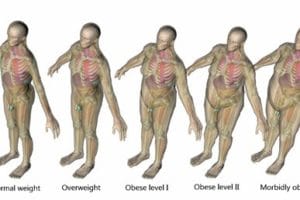beth israel deaconess medical center
Researchers identify a novel therapeutic approach for liver cancer
BOSTON — Cancer of the liver — rare in the United States but the third-leading cause of cancer death worldwide — can result from environmental exposures or infections like chronic hepatitis, but the link is poorly understood.
Now, researchers…
New target found for aggressive cancer gene
Researchers have found a way to kill human cells hijacked by a genetic accelerator that puts cancer cells into overdrive: the Myc oncogene. The discovery reveals new drug targets for Myc-driven cancers, which tend to be particularly aggress…
Evolution reveals missing link between DNA and protein shape
Fifty years after the pioneering discovery that a protein’s three-dimensional structure is determined solely by the sequence of its amino acids, an international team of researchers has taken a major step toward fulfilling the tantaliz…
Study shows rapamycin reverses myocardial defects in mouse model of LEOPARD syndrome
BOSTON — Congenital heart diseases affect approximately one in 100 patients, making them the most common type of birth defect and the number-one cause of pediatric deaths.
Now a new study showing that the mTOR inhibitor drug rapamycin can rev…
Recalled ICD leads fail in women, youths most often
The recalled Sprint Fidelis implantable cardioverter-defibrillator (ICD) leads (Medtronic) failed more often in younger patients, women, and individuals with hereditary heart disease, according to a multicenter study published online Jan. 17 in Circ…
Noninvasive brain stimulation helps improve motor function in stroke patients
BOSTON — A noninvasive electric stimulation technique administered to both sides of the brain can help stroke patients who have lost motor skills in their hands and arms, according to a new study led by researchers at Beth Israel Deaconess Medical …
New brief tool to screen for cognitive impairment in elderly patients
BOSTON — Dementia and cognitive impairment are widespread among elderly individuals in the United States, affecting more than 8 million people to some degree.
The Sweet 16, a new screening test developed by a team of geriatricians and neurologist…
Rictor protein offers scientists a new molecular target for cancer therapies
BOSTON — The discovery that a protein called Rictor plays a key role in destroying a close cousin of the AKT oncogene could provide scientists with a new molecular target for treating certain cancers, including breast cancer. Described in the Sept…




